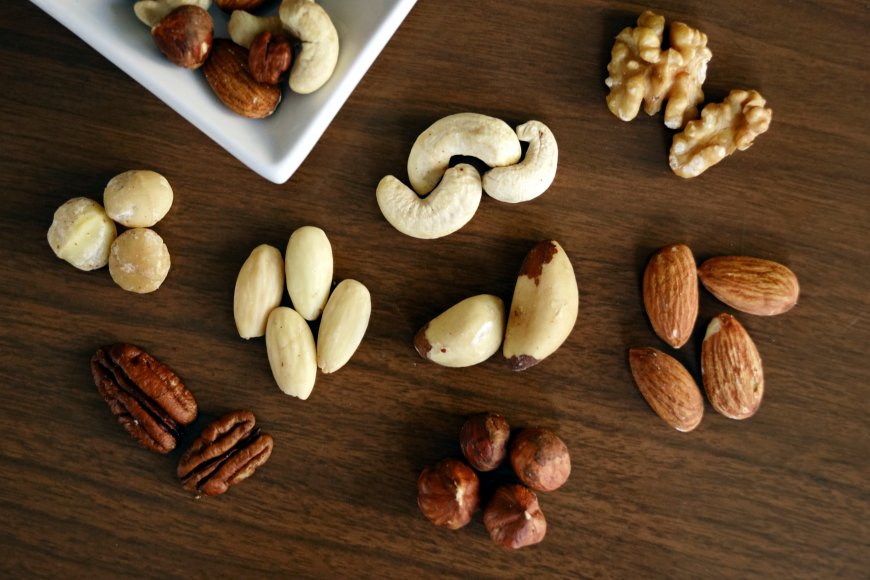World Kidney day: Nutrition strategies for a healthy kidney

Today is World Kidney Day. Are you or someone you know dealing with kidney problems? Are you looking for ways to support your kidneys and maintain a healthy lifestyle? Look no further, as we have gathered the best nutrition strategies for a healthy kidney. With the right foods and habits, it's possible to improve kidney function and prevent further damage. So let's dive into some of the most effective dietary tips that will keep your kidneys in tip-top shape!
What is the kidney?
The kidney is a vital organ that helps to filter waste products from the blood and maintain fluid levels in the body. Kidney disease can lead to a build-up of toxins in the blood and an imbalance of fluid levels, which can be dangerous.
The function of the kidney
The kidneys play a vital role in keeping the body healthy by filtering blood and removing waste products. They also regulate fluid levels in the body and produce hormones that help control blood pressure. A healthy diet is important for kidney function, as it can help to prevent or delay the onset of kidney disease.
Nutrients for healthy kidneys
There are several nutrition strategies that can help to keep the kidneys healthy, including eating a balanced diet, drinking plenty of fluids, and avoiding processed foods and excessive salt intake. The key nutrients that are especially important for kidney health are:
Protein: Protein is essential for the structure and function of all cells in the body, including those in the kidneys. Eating enough protein can help to prevent or slow down the progression of kidney damage.
Vitamin C: Vitamin C is a powerful antioxidant that helps protect cells from damage. It also helps the body absorb iron, which is important for maintaining healthy blood levels. getting enough vitamin C can help prevent or delay kidney damage.
Potassium: Potassium is an electrolyte that helps regulate fluid balance in the body. It is also crucial for heart health. Eating foods rich in potassium can help keep blood pressure at a healthy level, which is important for protecting the kidneys from damage.
Calcium: Calcium is necessary for strong bones and teeth. It also helps keep blood vessels healthy and regulates muscle contractions. Getting enough calcium can help to prevent or slow down the progression of kidney disease.
Factors that affect kidney health
There are a number of factors that affect kidney health. Some of these are within our control, while others are not.
Diet: what we eat and drink can have a big impact on our kidney health. Eating a healthy diet that is low in salt, sugar and fat can help to keep our kidneys healthy. Drinking plenty of fluids, especially water, is also important for good kidney health.
Exercise: staying active and exercising regularly can help to reduce the risk of developing kidney disease.
Weight: being overweight or obese increases the strain on our kidneys and can lead to kidney damage. Losing weight and maintaining a healthy weight can help to protect our kidneys.
Genetics: some people are at increased risk of developing kidney disease due to their genetic makeup. If you have a family history of kidney disease, you may be more likely to develop the condition yourself.
Age: as we get older, our risk of developing kidney disease increases. This is why it’s important for older adults to pay attention to their diet and exercise habits, and maintain a healthy weight.
Chronic conditions: certain chronic conditions, such as diabetes and high blood pressure, can damage the kidneys over time. Managing these conditions through lifestyle changes and medication can help to protect your kidneys.
Foods to eat for a healthy kidney
There are a few basic things that you can do to keep your kidneys healthy. First, eat a healthy diet. This means eating plenty of fruits, vegetables, and whole grains. It also means eating less salt, sugar, and fat. Second, drink lots of water. This will help to flush out your system and keep your kidneys functioning properly. Third, exercise regularly. This will help to keep your blood pressure under control and improve your overall health. Finally, if you smoke, quit. Smoking is one of the leading causes of kidney disease. If you have any questions about how to keep your kidneys healthy, talk to your doctor or a registered dietitian.
Foods to avoid for a healthy kidney
There are certain foods that can contribute to kidney damage and should be avoided if you want to keep your kidneys healthy. These include processed meats, full-fat dairy products, refined carbohydrates, and sugary drinks. Instead, opt for fresh fruits and vegetables, lean protein sources, whole grains, and low-fat dairy. Drink plenty of water throughout the day to keep your kidneys flushed and free of toxins.
Conclusion
Eating healthy and adopting a nutrient-rich diet is important for maintaining kidney health. With the right nutrition strategies you can help your kidneys function optimally, reduce inflammation and oxidative stress, as well as improve overall health. This includes eating plenty of fresh fruits and vegetables, limiting processed foods, avoiding high sodium intake, drinking adequate amounts of water throughout the day, consuming less animal protein if needed and replacing it with plant-based proteins to ensure proper amino acid balance. By following these simple steps you will be able to better care for your kidneys and live a healthier life.







